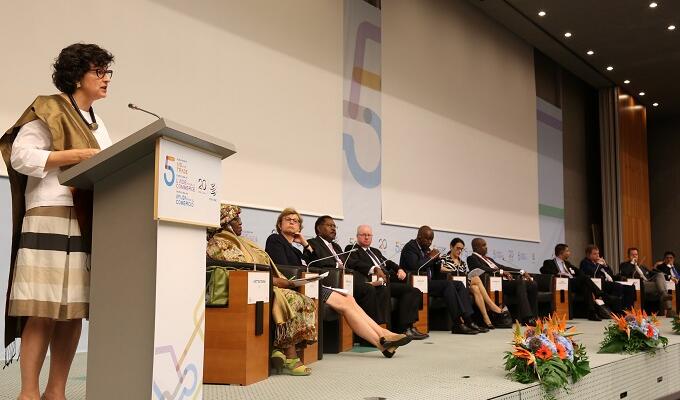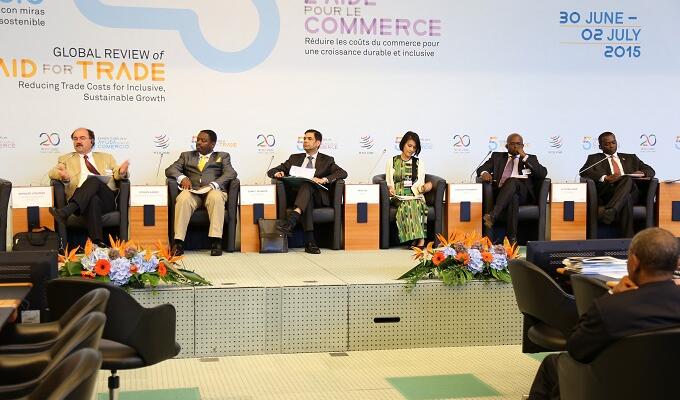

Restructured EIF, strong focus on trade in services at WTO Aid for Trade Review
Trade-led development of least developed countries (LDCs) will be led by a leaner, more efficient Enhanced Integrated Framework (EIF) and renewed focus on services, according to government and business leaders participating in the World Trade Organization’s (WTO) Fifth Global Review of Aid for Trade.
Phase two of the EIF – a partnership supporting economic growth and poverty reduction in LDCs – was launched on 1 July at WTO headquarters in Geneva on the second day of the event, following talks on inclusive and sustainable growth on the first day. Reducing trade costs for inclusive and sustainable growth is the theme of the WTO’s biennial review of trade-related development assistance.
‘The EIF is a very important initiative which has delivered real and concrete support to the LDCs in recent years, helping them to use trade as a tool for growth, sustainable development and poverty reduction,’ said WTO Director-General Roberto Azevêdo, who opened the event and confirmed WTO’s commitment to the new EIF.
This new phase, with the tagline ‘Trade for LDC Development’, is designed to be more efficient and cost-effective, focusing on results delivery and on stronger programme management to better respond to country conditions and priorities.
Arancha González, Executive Director of the International Trade Centre (ITC), spoke on behalf of EIF partner agencies at the session, saying that the EIF would have an instrumental role to play in the post-2015 development agenda.
‘The agencies are confident that we will see a more dynamic and responsive EIF which takes advantage of its unique position to leverage additional resources and support for trade development in LDCs,’ she said.
During the event, Norway announced it would donate NOK 150 million (US$ 19 million) for EIF’s work in its second phase. Donors will have the opportunity to pledge their contributions during a pledging conference at the WTO's 10th Ministerial Conference in Nairobi in December.
The second phase of the EIF will be operational on 1 January 2016.
Services need to play a stronger role in contributing to trade-led growth in LDCs, according to business leaders and policymakers at an afternoon session on the topic of reducing trade costs for LDCs’ services trade development.
‘Trade facilitation in Africa means boosting services,’ said Alioune Sarr, Minister of Commerce, Entrepreneurship and the Informal Sector, Senegal. ‘Forty percent of investments in Africa are in services.’
Businesses that provide services can increase their productivity through participation in global value chains, as services account for more than half of overall trade in LDCs. An increase in trade in services should be aligned with that of trade in goods – as even trade in goods is made up of trade in services – through the reduction and elimination of trade barriers.
For growth in trade in services to be sustainable, women and youth need access to business and entrepreneurial opportunities in key sectors, such as tourism in Myanmar. Women operate more than 50% of tourism companies in the country, according to Myat Su, Managing Director, Silk Road to Asia Travels and Tours Company Limited.
Participants at the session said that increasing trade in services and reducing related costs for LDCs require capacity building to enable LDCs to identify their priority services sectors, as well as the development of monitoring mechanisms through integrated policy frameworks. Partnerships between the private sector and government will help to ensure these steps are taken.



